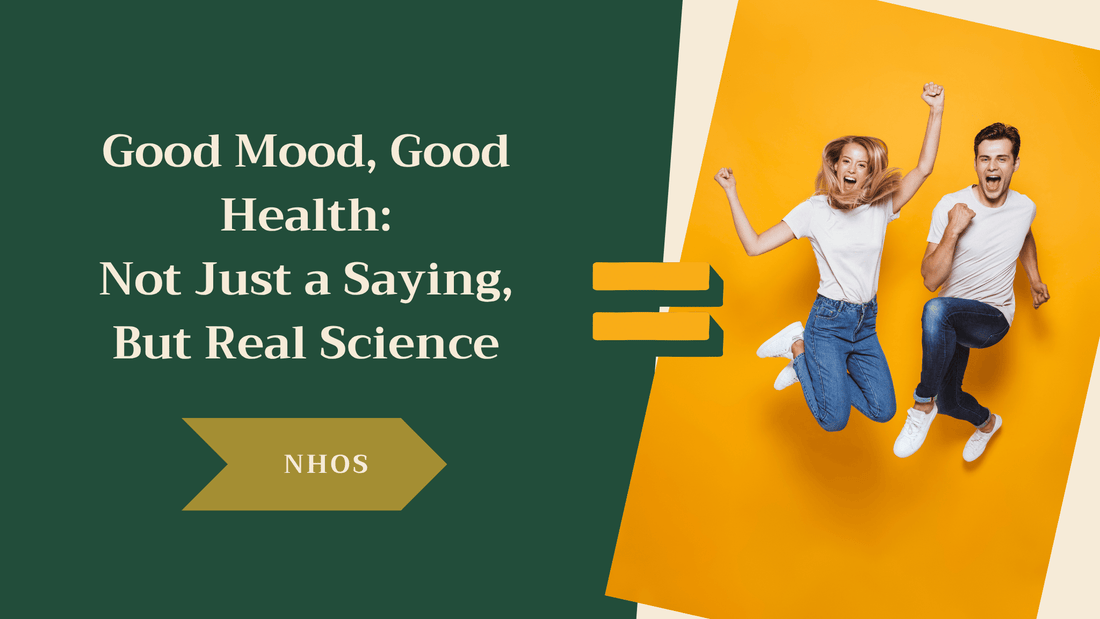
好心情,好健康:不只是说说而已,而是真正的科学
引言:不仅仅是一句令人愉悦的名言
“保持乐观,你就能保持健康!”这听起来像是你那位开朗活泼的阿姨会说的话,对吧?或许,她会一边喝着花草茶,一边点着香薰蜡烛。但关键在于——她可能真的说对了。越来越多的研究表明,我们的情绪并非仅仅停留在脑海中。它们会流经我们的全身,影响着我们的免疫系统、心脏、消化系统,甚至我们的自愈速度。
所以,这不是空洞的自我疗愈说辞——而是用温暖的真理包裹着严谨的科学。让我们来揭秘你的情绪如何成为你的良药。
1. 情绪与身体:一场无形的对话
你是否曾在重要演讲前感到紧张不安?或者在紧张的一天结束后感到头痛?这都是因为你的大脑和身体通过复杂的神经、激素和化学物质网络在进行“对话”。
- 大脑-身体高速公路:大脑通过神经系统和内分泌系统(激素)与身体沟通。当你焦虑时,你的身体会释放皮质醇和肾上腺素等压力荷尔蒙。
- 短期=还好,长期=糟糕:这些压力反应在紧急情况下对我们有帮助。但如果你总是处于紧张状态,你的免疫系统就会变弱,消化功能也会减慢,患慢性病的风险也会上升。
所以是的——长期的坏情绪确实会让你生病。
2. 压力:沉默的健康劫持者
压力不仅仅是一种情感负担,它是一种会产生实际后果的生理现象。
- 免疫力受损:长期压力会降低免疫细胞的效力。这就是为什么当你不堪重负时更容易感冒。
- 炎症失控:持续的情绪压力会引发低水平炎症,这与心脏病、糖尿病甚至某些癌症有关。
- 您的肠道也会感受到:压力会扰乱您的消化和微生物群,导致腹胀、胃痛或肠易激综合征 (IBS)。
结论是什么?你的精神状态对你身体状态的影响可能比你想象的要大。
3. 积极情绪:你的天然健康助推器
现在有个好消息——正确的情绪可以像内部维生素一样发挥作用。
- 快乐的心:研究表明,经常感到感激、快乐和爱的人血压较低,心脏更健康。
- 情绪和免疫力:笑声和喜悦实际上会促进抗体的产生并激活您的免疫细胞。
- 睡眠更好,恢复更好:心态积极的人往往睡得更好,这有助于身体更快地自我修复。
所以,不要低估每天的一次笑声、一句善意的话语或几分钟的专注力——它们比看起来更有力量。
4. 提升情绪健康的实用方法
你无需出家为僧,也无需冥想数小时。小步前进,成就大事:
- 练习正念:即使每天 5 分钟也可以减轻压力并提高情绪控制。
- 记感恩日记:每天写下三件好事可以随着时间的推移改变你的心态。
- 与他人联系:良好的对话=良好的荷尔蒙(如催产素)。
- 活动身体:运动可以释放内啡肽,这是一种天然的情绪提升剂。
记住:你的大脑是你身体的一部分。善待它,你的整个身心都会受益。
结论:快乐的心态使你更健康
所以,下次有人对你说“振作起来,这对你的健康有好处”时,别翻白眼。科学正在支持他们。你的情绪健康与你的身体健康息息相关——照顾好自己的感受不是自私,而是明智之举。
因为当你心情愉悦时,你的身体也会随之愉悦。朋友,这不仅仅是个好建议,而是生物学原理。
